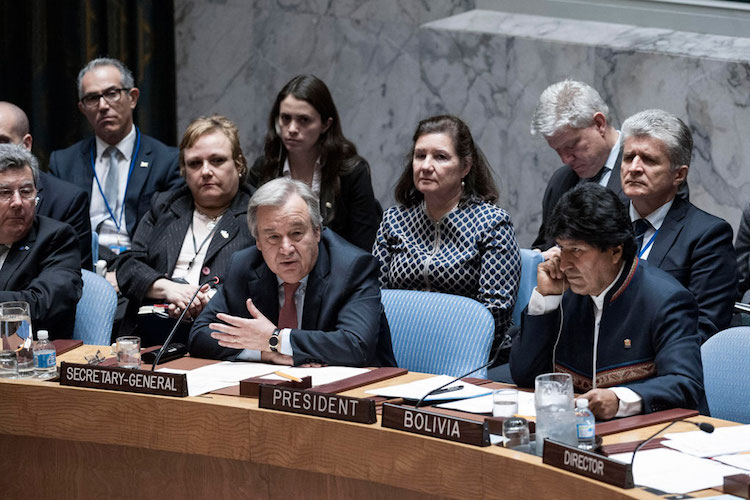By Lisa Vives, Global Information Network
NEW YORK (IDN) — A whiz-bang tour through Africa had some discordant notes for US Secretary of State Antony J. Blinken who was treated to wide vistas of Chinese-built infrastructure as his motorcade zipped from airport to airport.
In Nigeria, he zoomed past the China Chamber of Commerce in Nigeria building, a domed, palace-like structure along the expressway.
Similarly in Nairobi, Mr. Blinken got a glimpse of a giant expressway under construction—part of China’s massive Belt and Road Initiative which funds huge infrastructure projects across Asia and Africa. Tractors and other heavy equipment appeared to be Chinese-made and the Nairobi hotel where Mr. Blinken had official meetings was hosting a Chinese business group.
The American Enterprise Institute notes that Beijing made major infrastructure investments in Nigeria, including $7.5 billion since 2018 and China’s ambassador to Nigeria said Beijing plans to begin opening banks in the country soon, a move that could further integrate China into the country’s financial system, according to the New York Times.
But the American official was seriously caught on the back foot on the subject of human rights in the countries he visited. Shortly before his arrival, a Lagos state judicial panel turned in a report that accused soldiers and police officers with a “massacre” for spraying bullets into a peaceful crowd that was waving Nigerian flags and singing the national anthem in a non-violent protest over police brutality and corruption.
A dozen protestors were shot to death in the crowd that numbered in the thousands. “These shootings clearly amount to extrajudicial executions,” said Osai Ojigho, Amnesty International’s director for Nigeria. “There must be an immediate investigation and suspected perpetrators must be held accountable through fair trials.”
Video streams on social media showed wounded people lying in the streets or being carried by others into teeming hospital emergency rooms. Calls for action spread rapidly on social media, with the hashtag #EndSars, and celebrities in Nigeria and abroad — including Beyoncé and Justin Bieber, President Biden and Hilary Clinton — have added their voices to the demands.
Washington also backs Nigeria’s war against the Islamist terrorist group Boko Haram and the so-called Islamic State West Africa Province (ISWAP). But it is yet to clear the sale of 12 combat helicopters to Nigeria.
“We bought some ammunition from the US, and they are giving us conditions on how to use that ammunition,” Lawrence Adebowale, a teacher in Lagos, told the German news agency DW. “I don’t believe such conditions should exist.”
Similarly, in Kenya, the Secretary of State had to confront an erosion of human rights and a spate of extrajudicial killings in the country.
One of the civil society leaders who met with Blinken said that he hopes the U.S. does not give Kenya a “free pass” on corruption issues just because it is an important diplomatic partner in the region.
“That’s the danger. Kenya is seen as an anchor state,” said Irungu Houghton, executive director of Transparency International. “It’s important that the U.S. government. . . remains principled as opposed to pragmatic.”
The last stop on his trip will be Senegal where he will meet with Senegalese President Macky Sall who will take over the chairmanship of the African Union in 2022.
All of the countries on Blinken’s Africa 5-day itinerary will be invited to the White House’s democracy summit — a focal point of the Biden administration’s efforts to show it puts human rights at the center of its foreign policy. [IDN-InDepthNews – 22 November 2021]
Photo: Secretary of State Antony J. Blinken, speaking in Abuja, Nigeria, said the Biden administration wanted to work with African countries to advance democracy, prevent pandemics and slow climate change. Credit: Pool photo by Andrew Harnik. Source: NYT
IDN is the flagship agency of the Non-profit International Press Syndicate.
Visit us on Facebook and Twitter.
We believe in the free flow of information. Republish our articles for free, online or in print, under Creative Commons Attribution 4.0 International, except for articles that are republished with permission.

